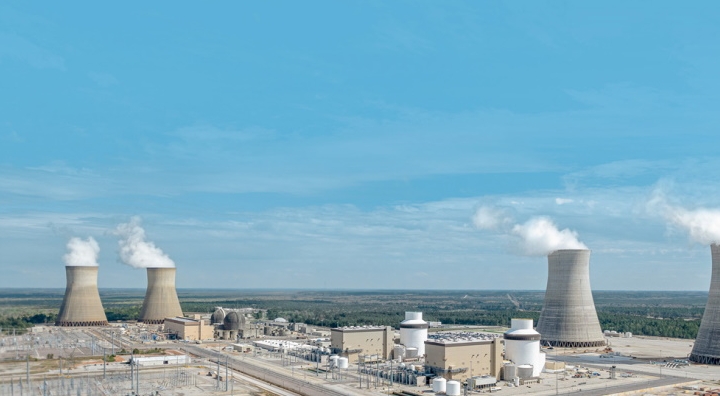
“You previously characterized the 2022 rule as a ‘jumping off’ point that would put RFS volumes on an upward trajectory,” they wrote. “The biodiesel, renewable diesel, and sustainable aviation fuel industry responded positively to that signal, increasing domestic production by a half-billion gallons last year. With that increased production, the industry met fully 5 percent of U.S. heavy-duty transportation fuel needs, and domestic producers are poised to achieve similar growth in 2023 and beyond.
“The Proposed Renewable Fuel Standard Rules for 2023, 2024 and 2025 that you released in December did not provide the expected upward trajectory for the biomass-based diesel industry,” the governors continued. “Domestic production of these fuels topped 3 billion gallons in 2022. However, the volumes your agency proposed would not even reach 3 billion gallons by 2025. Multiyear certainty of volumes that fall far below the industry’s capacity is exactly the wrong signal to send right now.”
Reyonds, Parson and Pillen stress that considerable investments by biodiesel and renewable diesel producers, oilseed processors and farmers in their states will be put at risk without a “true upward trajectory for the RFS volumes.”
According to the letter, there are currently 19 soybean processing projects under development across 10 Midwestern states that will lead to nearly $5 billion in investments to expand or build new facilities over the next three years. “As drafted, EPA’s proposed rule could put these investments at risk and stymie the soybean industry’s efforts to react to changing global markets for food and other needs,” the governors wrote.
“The Energy Information Administration recently estimated that U.S. renewable diesel production could reach 5.9 billion gallons by 2025,” they continued. “The biodiesel and renewable diesel industry already supports job opportunities for more than 75,000 Americans, primarily in the farm sector and oilseed processing. It currently contributes $23.2 billion to the U.S. economy, primarily in rural economies. The number of jobs could increase to 187,000 and the economic benefits could reach $8.8 billion if the industry doubles production as projected.
“U.S. fuel prices remain stubbornly high and diesel fuel stocks remain at low levels,” the governors added. “This impacts the economics of planting, harvesting, and transporting food – as well as transporting all essential goods – which could increase inflation for all Americans. Limiting rural economic development and hindering opportunities for farmers in our states is the wrong approach. Adding to the supply of fuel, expanding agriculture markets, and supporting rural economies is the right thing to do right now.”
The RFS final “set” rule is currently being reviewed by the White House Office of Management and Budget. The EPA is expected to released the final rule by June 14, as required under a consent decree reached last year as part of a legal challenge filed by Growth Energy related to the agency’s failure to meet statutory RFS deadlines.
Clean Fuels Alliance America, the Iowa Biodiesel Board and the Iowa Soybean Association are applauding the governors for their efforts to boost biomass-based diesel RVOs.
“Domestic biodiesel, renewable diesel, and sustainable aviation fuel producers, soybean growers and processors, and many other allied industries are looking to EPA to deliver on the promise of an upward trajectory for RFS volumes,” said Kurt Kovarik, vice president of federal affairs with Clean Fuels. “Our members have made significant investments to grow the industry, and those investments are already paying off.”
“We thank Governors Reynolds, Parson and Pillen for highlighting the imbalance between EPA’s promised trajectory for the RFS and its proposal,” Kovarik added. “In the first three months of 2023, the clean fuels industry increased biodiesel and renewable diesel production enough to completely fill the meager space that EPA proposed for the next three years. EPA must significantly expand the RFS volumes to support the continued growth and availability of advanced biofuels.”
Dave Walton, a member of Clean Fuels Alliance America’s governing board and a farmer from Wilton, Iowa, said, “A year ago, our industry cautiously celebrated what EPA called a ‘jumping off’ point that would put RFS volumes on an upward trajectory. But EPA’s proposal did not deliver on that promise; it wouldn’t provide any growth at all if you weigh it against the current pace of industry expansion. Biodiesel producers, oilseed processors and farmers face real-world consequences from low RFS volumes. There are 19 soybean processing projects in the Midwest to expand or build new facilities. As drafted, EPA’s proposed rule could put these investments at risk.”
Missouri Soybean Association President Matt Wright, a soybean grower from Emden, Missouiri, said, “Planned growth of the biodiesel and renewable diesel industry promises substantial economic opportunities for farming communities. Biodiesel production adds nearly $500 million to the value of our state’s soybean crop and supports thousands of jobs. Expected growth has encouraged investment in additional soybean processing capacity that will keep more value of our soybean crop here in our local communities. As capacity and production grows, the economic benefits will increase – unless EPA fails to get the RFS volumes right.”
Greg Anderson, also a member of the Clean Fuels governing board and a farmer from Newman Grove, Nebraska, added, “Homegrown biodiesel and renewable diesel production meets every one of the goals for the Renewable Fuel Standard – cleaner air, energy security, rural economic growth and opportunity. And it is providing drivers a break on fuel prices at the pump by increasing the supply. EPA has no reason to set low goals for the advanced biofuel sector.”
“Governor Reynolds continues to serve as an outspoken proponent for biodiesel, and we commend her for her leadership,” said Grant Kimberley, executive director of IBB. “We agree with the governor that rather than holding it back, now is the time to unleash the power of biomass-based diesel to address both new and old challenges that our country faces. Biodiesel can help reduce high fuel costs through a more diverse fuel supply, boost American manufacturing and shore up the vital farm economy – all while reducing carbon in the transportation sector. These are benefits the EPA can embrace by giving biodiesel more than a nominal increase under the RFS volumes.”
“U.S. fuel prices remain persistently high, which impacts the economics of our country across the board. Farmers face increased expenses in planting, harvesting and other inputs, and high fuel costs impact the transportation of our food and other goods, which could exacerbate inflation for all Americans,” said Randy Miller, ISA president and soybean farmer from Lacona, Iowa. “Also on the line is $5 billion in investments – more than 10 percent of which is in Iowa – to increase soybean crush capacity. This is badly needed infrastructure that would help shore up this country’s food and fuel supply.”







